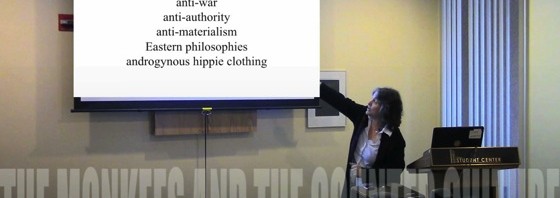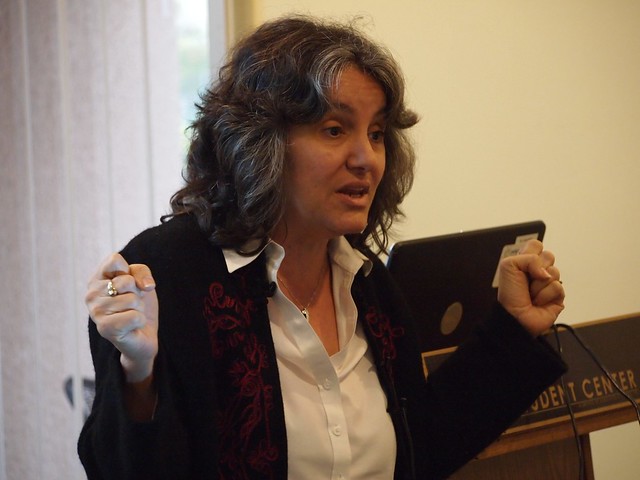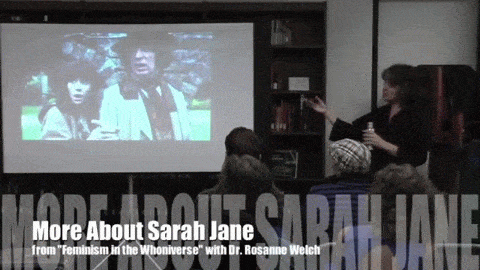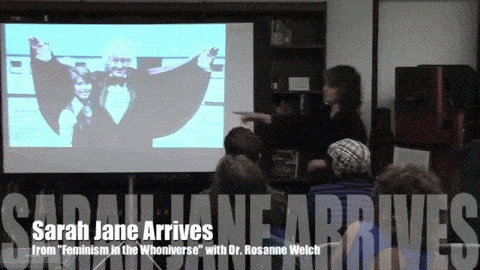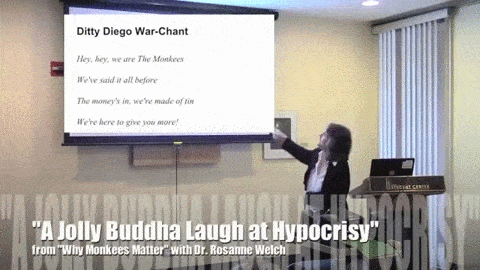A clip from this longer presentation – Doctor Who: Feminism in the Whoniverse with Dr. Rosanne Welch
Watch this entire presentation – Doctor Who: Feminism in the Whoniverse with Dr. Rosanne Welch
Dr. Rosanne Welch (https://rosannewelch.com) speaks on “Feminism in the Whoniverse” of Doctor Who, the BBC television program now in its 50th year. She reviews each of the Doctor’s female companions and speaks on how they are represented in the program and how they represented the women of their respective periods.
Transcript:
Sarah Jane Adventures — very interesting. I wills say — it was a child’s program — a child’d version of Doctor Who. It was quite fun. I will say, from a feminist perspective, we do still need a man in her life, but it’s her son. She adopts an alien boy who is a humanoid, yes, she becomes the mother of an alien kid and together they solve the crises happening to Earth. So, it’s interesting, but of course, being the mother of the child she is always the one in control. So, there’s that change going on there. So Sarah Jane might just be the most feminist companion The Doctor has ever had. She might be. We’re not sure yet.
Feminism in the Whoniverse was presented at the Cal Poly Pomona University Library where Dr. Welch teaches in the IGE (Interdisciplinary General Education) program.
This is the 4th talk on various aspects of Doctor Who that Dr. Welch has presented. You can find these talks using the links below.
- Doctor Who and Culture
- Doctor Who Regenerated
- “How the Growing Popularity of the English Who-niverse Effected American TV” with Dr. Rosanne Welch
Subscribe to Dr. Welch’s YouTube Channel
Podcast: Play in new window | Download
Subscribe: RSS


